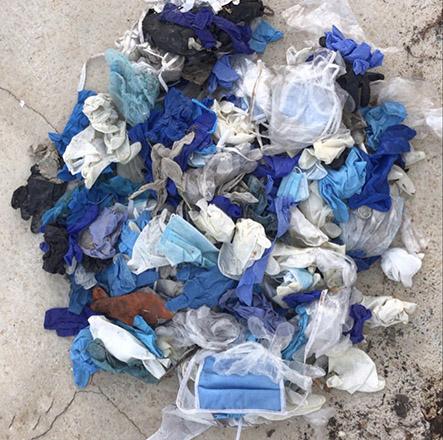- Local News
- Web-2020-04-22 | 06:11 pm

Abu Hanna, an environmental and recycling enthusiast who has "always found litter very annoying”, decided one day to take a plastic bag and start collecting gloves and face masks from the streets.
"Surprisingly, I managed to collect 197 gloves and 11 face masks in a two-hour walk,” she told The Jordan Times over the phone.
Abu Hanna then thought, "what can we, as a community, achieve if we all try this out, one neighbourhood at a time?”
With her interest in photography, Abu Hanna decided to document her initiative and share it on social media. She longed for "creating a community of people with one thing in common: Keeping Earth clean.”
With that simple start, Abu Hanna set out to create her "De-Litter Jordan” campaign, creating a community who all now take walks to collect masks and gloves, sharing them on the campaign’s social media platforms and hoping to motivate others to do the same.
"The idea is that each person would operate in their neighbourhood, first to keep their neighbourhood clean, and second to set an example for others around them. We have a group where we communicate, share our experiences, motivate and locate each other,” said the campaign’s creator.
The campaign has transcended Jordan’s borders to reach Libya, echoing Abu Hanna’s attention to the fact that people everywhere could "abuse Earth in such a short time”.
Abu Hanna, a German-Jordanian University graduate, however, makes sure the campaign’s participants are taking the necessary health precautions given the state of the ongoing pandemic.
On the campaign’s several platforms, she advises participants to "wear gloves, use something to pick the litter up such as sticks or forceps and use your sanitiser and wash your hands afterwards”.
She also advises them to keep a one metre social distance if they are going out in small groups.
Abu Hanna hopes that the campaign will continue after the coronavirus pandemic, expanding to raise awareness in schools and universities about the "duty of human beings in protecting Earth, dividing litter in each household, having the know-how on how to recycle, reduce, reuse and upcycle, as well as creating places in each neighbourhood so that people can segreate their litter”.










